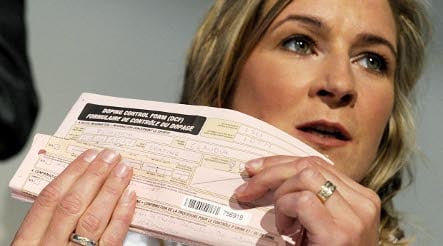The five-time Olympic and six-time world champion, joined by her lawyer and agent at a press conference in Berlin, vehemently disputed the International Skating Union (ISU) findings.
The 37-year-old claimed that eight of the 20 tests carried out in training and used by the ISU in the case against her contained identification errors.
In these eight cases, the bar code on the sample was different from the bar code used in the summons issued to her, she said. And Pechstein said that two different labs found differing levels of reticulocytes, or immature red blood cells, in a sample taken on April 15.
“Reticulocytes cannot yet be used to prove doping, knowledge of this area is not advanced enough,” said Pechstein.
And to prove she has nothing to hide the German athlete said she was ready to undergo six weeks of blood and urine tests carried out by the German anti-doping agency (NADA).
The blood profile of the multiple Olympic and world champion showed abnormal variations in three tests. Pechstein, who will now be banned until February 9, 2011, has filed an appeal at world sports’ top court CAS.



 Please whitelist us to continue reading.
Please whitelist us to continue reading.
Member comments